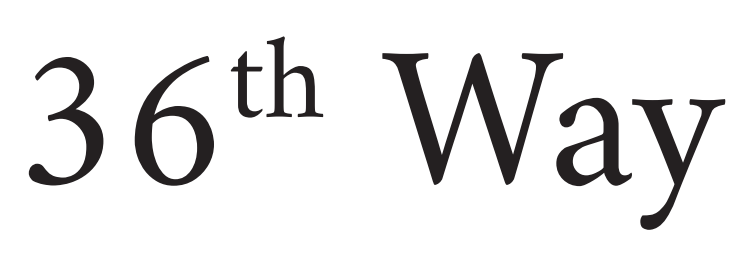Character Creation
Hi there! Last time, I covered the basic stuff that goes into each character. Now, we're going to go over what you need to make a character. There's really not much to it (which is the point!) so this one should be short.
In general there are five steps. All but one of them (Class, which we'll dive into last) barely involve mechanics in the Crunchy Game sense - rather they're about defining how you interact with the world.
- Constraints
- Concept and One Unique Thing
- Background
- Class
- Relationships
Constraints
Constraints is just "what kind of setting your character is being made in, and what can you do/not do." Extremely basic stuff, but it's worth a double check, especially if your setting isn't just "standard fantasy" - this can help inform concepts and such. This is where Icons or Factions get defined too. Who are the power players in the setting? Are they more centralized into Icons (for more heroic fantasy) or more distributed into Factions (lower fantasy)? This informs the possibility space, so locking that down early is good.
Constraints (as the first step) is a good place to start safety check-ins, too - it's a good time to cover what everyone wants out of the game. This is part of why it's the first thing - to set the tone as early as possible.
Concept and One Unique Thing
Concept is...well, what's your character's concept? That's all. Figure out what character you want to be playing in the most broad sense. At this point define your One Unique Thing - this is mostly free-form, but there's some guidance provided as to what will make a good one. Your OUT is supposed to inform the setting, there's no wrong answer (beyond any set in Constraints).
As noted in my last post, you'll get a Skill from your OUT - that's all for mechanics so far though.
Background
Background is something in the character's past that informs them. This is supposed to be separate from the One Unique Thing. Background is a replacement for Race/Ancestry - you could use one as your Background, but only if there's something more than physicality attached. You can just as easily pick a culture, an origin, a type of place (like city/plains), a former status (noble, for instance), or a former profession.
Background, like One Unique Thing, provides a Skill. We'll pick an encounter power that goes along with your Background later, but that's all. Since we've gone and killed ability scores, no sense in having more. All of that is saved for your Class.
Relationships
Relationships are usually last, but I'm going to skip ahead because I have more to talk about for Classes. As mentioned in my last post, Relationships are comprised of an Icon/Faction and Positive or Negative. It defines how they feel about YOU - you're a known quantity, at least on their periphery. You can decide how and why. You pick out three of these at first level, more later.
Class
Finally, the bulk of the mechanics. This is where I wanted to center things the most because a Class is supposed to define how your character most interacts with the world. I'm not going to get into each class (saved for next post) but each has a slightly different approach.
- Off the bat, most class Attributes (your combat bits) are set by the class itself, no decisions needed. You do get a choice between one of two bonuses on top of what each class normally gets, but that's it. Your real customization is more qualitative than quantitative.
- Next step is drilling down into Talents. Each class gets 3 Talents at first level (some classes can get 4-5 later). These can be passive abilities, active abilities, or both. What a Talent means varies by class depending on what other abilities and class features they have.
- After that, you choose one Perk per level. If you've played one of these and know what Feats are, they're that, but they're called Perks because Feats is a dumb name. Unlike most versions of things like this, though, these mostly augment Class Features/Talents. No huge list.
- Finally, pick out Abilities - spells, miracles, maneuvers, tricks, etc - if your class has them. (Most classes do.) This is probably a good place to pick your Background power as well. And that's all!
The goal of reorienting things in this way was to put more emphasis on qualitatives than quantitatives - the what of a character rather than the how much. (Not that the latter doesn't exist, but it's mostly baked in.) Next time, I'm going to talk about a lot more what - I'm going to give a brief overview of a lot of the 14 classes (not sure how many, depends on how much I have to say about each) and their development history.
Until next time!
Get 36th Way SRD
36th Way SRD
A full SRD based on the 13th Age SRD!
| Status | In development |
| Category | Physical game |
| Author | Binary Star Games |
| Tags | 13thage, Fantasy, Tabletop role-playing game |
More posts
- PostmortemSep 02, 2022
- Alchemist, why Occultist/Chaos Mage don't exist, and grab bag of the restAug 29, 2022
- Druid and NecromancerNov 27, 2021
- Commander and MonkNov 15, 2021
- Sorcerer and BardNov 05, 2021
- Separate charsheet/card sheet!Nov 03, 2021
- v1.0 is live!Nov 02, 2021
- Barbarian, Ranger, and PaladinOct 30, 2021
- The Rogue and The WizardOct 23, 2021
- The ClericOct 19, 2021

Comments
Log in with itch.io to leave a comment.
14, holy shit
It’s like half the page count.
e: Checked, pages 20-144 are just class entries. There's 223 pages before like license, character sheets, etc. So yep, slightly over half the book.